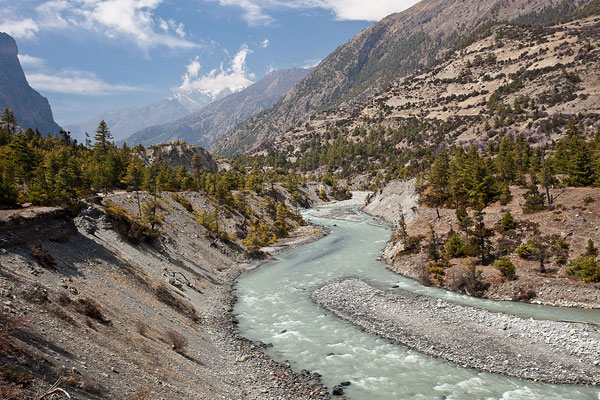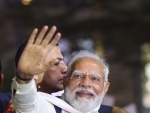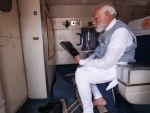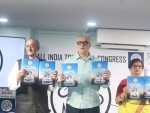
Gathering Momentum
According to the action plan of the Committee, the draft will be disseminated through newspapers, radios and other mass media. The draft will also be published in the Nepal Gazette. Officials of the CA Secretariat will visit 240 electoral constituencies and 75 Districts to seek people's feedback.
Moreover, the CA formed a sub-committee on July 9, 2015, to collect suggestions on the draft Constitution from Non Resident Nepalis (NRNs), estimated to be around three million, including students and labor force living away from home. The feedbacks from NRNs are to be collected through embassies and foreign wings of political parties. Those living abroad can also post their comments via CA's websitewww.can.gov.np/draft.
Abruptly, it appears, the process of finalizing the draft Constitution has been expedited.
After 17 months of the formation of the second CA on January 20, 2014, the preliminary draft of the new Constitution was tabled in the CA on June 30, 2015, paving the way for promulgation of the new Constitution. Constitution Drafting Committee (CDC) Chairman Krishna Prasad Sitaula presented the draft, proposing wider discussion among CA members. CDC had recommenced the drafting process on June 14, 2015, after it received the report of the CA's Constitutional Political Dialogue and Consensus Committee (CPDCC) and directed the five Sub-committees under it to prepare draft proposals as per the 16-point Agreement signed by four major political parties - the Nepali Congress (NC), Communist Party of Nepal-Unified Marxist Leninist (CPN-UML), Unified Communist Party of Nepal-Maoist (UCPN-M) and Madhesi Janadhikar Forum-Loktantrik (MJF-L) - on June 8, 2015. The Sub-committees include a Legislature Sub-committee under the convener-ship of Bharat Mohan Adhikari; a Justice Sub-committee under Ramesh Lekhak; an Executive Sub-committee under Hitraj Pandey; a Preamble Sub-committee under Jitendra Dev; and a Fundamental Rights Sub-committee under Aindra Sundar Nembang.
United Nations Resident and Humanitarian Coordinator in Nepal, Jamie McGoldrick, commending the progress in the Constitution drafting process on behalf of the international community, in a statement issued on July 9, 2015, observed, "The accomplishment of a democratic and inclusive Constitution, providing for the interests, equity and rights of women and men from all sections of Nepali society would build on the positive achievements of past agreements. With this fundamental and guiding document, the political leaderships have a historic opportunity to inspire a peaceful, united, inclusive and democratic future of Nepal."
However, in a major blow to the process, the Supreme Court (SC) on June 19, 2015, ordered the CA and concerned political parties not to implement the 16-point Agreement. Issuing an interim order, responding to a writ petition filed by Bijay Kanta Karna on June 16, 2015, a single bench of Justice Girish Chandra Lal noted that the points of the deal on forming eight provinces, assigning provincial assemblies to name them, and forming a Federal Commission to finalize delineation, would contradict Articles 138 and 82 of the Interim Constitution of 2007. The SC order stated, "As Interim Constitution is the fundamental law of Nepal, it is duty of every person to uphold it. The Constituent Assembly, executive, judiciary and even the political parties have been established as per the provisions of the Constitution and institutions within the state or founded by the state should function in accordance with the Constitution and Constitutional Law. If attempts are made to draft a new Constitution overriding the provisions of the existing Constitution, it could be controversial and could also invite another conflict."
Immediately after the SC's ruling, the four major political parties held an emergency meeting on June 19, 2015, at Prime Minister Sushil Koirala's official residence in Baluwatar, Kathmandu, and issued a joint statement which read, "The CA is an independent and capable institution. It is indisputable that its decision on Constitution-drafting will be final. It's a prerogative of the CA to decide how to make the Constitution and of what kind." Subsequently, overlooking the SC order, the four major parties went ahead with their plan to promulgate the new Constitution by tabling the draft of the new Constitution in the CA on June 30, 2015.
Foreseeing a future stand-off, President Ram Baran Yadav invited Prime Minister and NC President Sushil Koirala, CPN-UML Chairman KP Sharma Oli, UCPN-M Chairman Pushpa Kamal Dahal aka Prachanda and MJF-L Chairman Bijaya Kumar Gachhadar to Sheetal Niwas, the official residence of the President in Kathmandu, on July 10, 2015, and advised the four major political parties to promulgate the new Constitution only after the delineation of provinces, a key demand of the leaders from Madhesi and Janajati constituencies, in accordance with the SC's observation. UCPN-M has already softened its earlier stand on the issue, on July 12, 2015, with UCPN-M Chairman Dahal stating, "It is possible to delineate provinces prior to promulgation of the new Constitution. I have asked NC and UML leaders to give the Constitution a complete shape."
Meanwhile, United Democratic Madhesi Front (UDMF), a four party alliance of Madhesi People's Rights Forum Nepal (MPRF-N), Tarai Madhes Democratic Party (TMDP), Sadbhavana Party (SP) and National Madhes Shadbhavana Party (NMSP), burnt the copies of preliminary draft of the Constitution, on July 1, 2015. After tearing and burning the Constitution draft in front of the Department of Roads office in Babar Mahal, Kathmandu, the Madhesi leaders came down heavily on the preliminary draft, and warned of severe protests if the major political parties did not pay heed to their demands. On July 10, 2015, the dissenting UDMF announced programmes of protest which included putting black flags in public areas and organizing rallies in Kathmandu and other major cities of the country. The alliance has been demanding that Nepal be federated into 11 provinces as recommended by the State Restructuring Commission formed in 2012, and not into eight as agreed in the 16-point Agreement.
Separately, four fringe political parties in the CA, including Sanghiya Samajwadi Party (SSP), Tarai Madhes Loktantrik Party (TMLP), SP and Tarai Madhes Sadbhavana Party (TMSP), boycotted the CA meeting on July 5, 2015, reiterating their demand that the Constitution should be promulgated only after the delineation of federal units. TMLP General Secretary Sarbendra Nath Shukla stated that federalism without demarcation of state boundaries was like a body without its head. Similarly, the Rastriya Prajatantra Party-Nepal (RPP-N) on July 5, 2015, announced protest programmes demanding an end to secularism and re-establishment of the Hindu state.
Astonishingly, during an interview on June 26, 2015, Prime Minister Koirala had already declared,
There is no reason to doubt the trajectory of new Constitution. It has already entered a process. Every Committee of the Constituent Assembly is working on war footing. There is not a moment to waste. You might consider the Constitution done and dusted. No force can stop it now. There is no time like now to reconstruct the country and take it on the path of development and prosperity. The recent disaster has only added to the urgency. Our commitment is peace, development, democracy and prosperity and there is no better time to institutionalize them.
Further, speaking at a ceremony in Kavrepalanchok District on July 3, 2015, the Prime Minister again said that no one could obstruct the Constitution writing process, as it had already been initiated and the new Constitution would be promulgated at any cost.
The coming together of the major parties to finalize the draft of the new Constitution is undoubtedly a major achievement. The process of taking the draft to the public and receiving their feedback will continue for a fortnight or so. Maintaining a high level of transparency on the kind of suggestions received, on how they are being tabulated and how these concerns will be tackled in the new Constitution, will be necessary, if the existing rifts in the country are not to widen further. The legal face-off between the major parties and the country's apex court will also need to be resolved, if it is not to turn into a disruptive rallying point for dissident forces in the country. It is encouraging to note that some first steps in this direction have already been initiated by the UCPN-M.
Support Our Journalism
We cannot do without you.. your contribution supports unbiased journalism
IBNS is not driven by any ism- not wokeism, not racism, not skewed secularism, not hyper right-wing or left liberal ideals, nor by any hardline religious beliefs or hyper nationalism. We want to serve you good old objective news, as they are. We do not judge or preach. We let people decide for themselves. We only try to present factual and well-sourced news.







